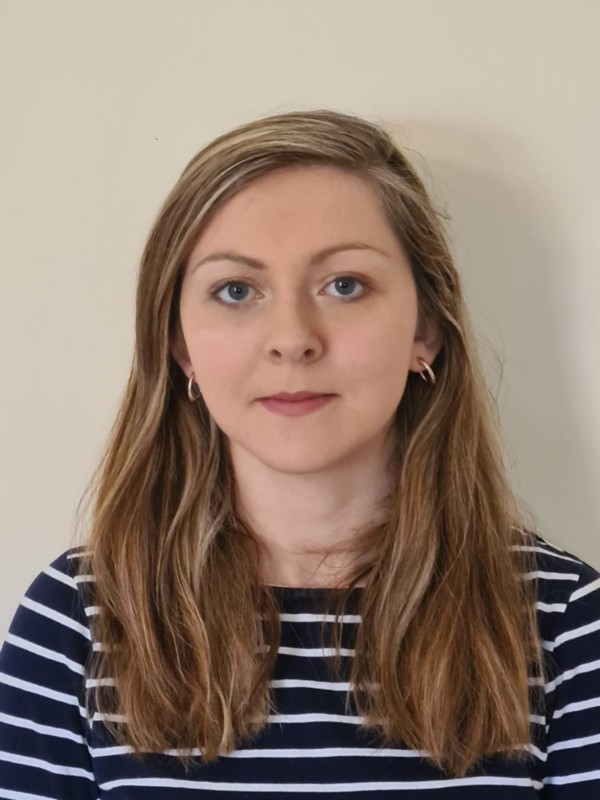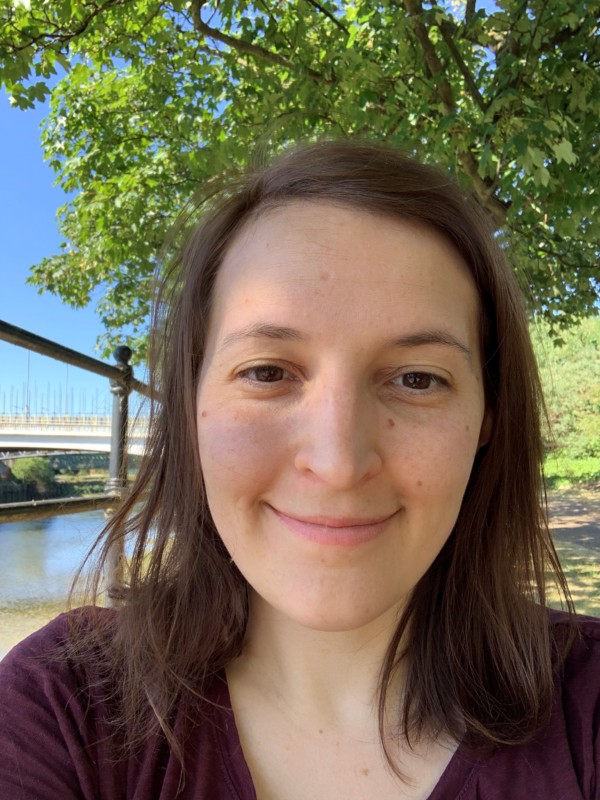Blog – My MRes in Experimental Medicine (Cancer) – Annie Tivey and Erin Peat
Run by The University of Manchester, each year Manchester BRC and the NIHR Manchester Clinical Research Facility (CRF) support a number of Masters of Research (MRes) degrees in Experimental Medicine. These give doctors, nurses, and scientists the opportunity to learn about the design, leadership, and delivery of high-quality early phase clinical studies, through a year-long, funded programme of taught units and projects.
Academic Clinical Fellow, Annie Tivey, and Trainee Clinical Bioinformatician, Erin Peat, reflect on their MRes Experimental Medicine Cancer experience at The Christie, and how it has helped them in their research careers.
Annie Tivey
After completing my foundation training programme, I was offered the chance to apply for the MRes in 2019 as part of my role as a Research Fellow with the Lymphoma Research Team at NIHR Clinical Research Facility (CRF) at The Christie, where I was working on several early phase trials. I hoped the MRes would allow me to gain a greater theoretical understanding of the process of designing and running early phase trials
The MRes gave me a greater understanding of the broader context of experimental medicine including pre-clinical drug development, and how translational research programmes can be built into clinical trials.

The MRes definitely helped me learn more about what is involved in developing early phase trials, particularly trials in areas beyond lymphoma and oncology.
In early units, we covered issues such as trials in special groups such as pregnant women, vulnerable adults, and children. This helped me consider ethical and logistical factors to trial design I’d not previously encountered, such as recruiting patients who lack capacity to consent and how patient and public engagement activities can support trial development.
Later modules on pre-clinical and translational medicine allowed me to have a greater appreciation for how to anticipate toxicities (whether a drug is harmful to the body) based on pre-clinical studies, and how to determine what is and is not considered a ‘manageable toxicity’ that would make it safe to take the drug forward into further trials. The case study exercise around the TeGenero trial (a phase 1 trial that went very wrong when six people died from a first-in-human dose of an antibody drug) emphasised the responsibility all of us who are working in experimental medicine have to our participants, and how understanding some key principles have helped to avoid similar incidents.
Working with Professor John Radford, Professor of Medical Oncology at The University of Manchester, one of my dissertation projects was based on developing a protocol for a pilot study using wearable sensors for physiologic monitoring of cancer patients at risk of sepsis. This project taught me a huge amount about developing a protocol, working with project managers and sponsorship to overcome logistical challenges, submitting an ethics application, and setting up a clinical trial. Based on this work we were able to deliver the RECAP pilot study looking at these sensors in cancer patients with COVID-19 being managed as outpatients, which I presented at the 2021 virtual Greater Manchester Cancer Conference and NCRI Festival.
I am now working as an NIHR Academic Clinical Fellow in Medical Oncology at the early stages of training to be an Oncologist – combining my clinical training with periods of dedicated research time which have enabled me to continue working on the projects I initiated during my MRes.
The skills gained during the MRes are proving invaluable in pursuing current projects, as well as giving me confidence in developing new independent research ideas.
Longer term in my career I am hoping to continue to work in clinical trials, including work on academic investigator-initiated studies. The MRes has given me an invaluable grounding in this area.
I would encourage anyone from any background with an interest in Experimental Medicine to apply. The course was great for bringing together people with different experiences – from medics, research nurses, pharmacists, and trials co-ordinators – everyone brought something different to the table and the small group-based teaching style meant we were all able to learn a lot from each other throughout the course.

Erin Peat
Before completing my MRes in 2019, I studied BSc Natural Sciences: Biology over five years at The Open University, while working at various NHS hospitals (including Manchester University NHS Foundation Trust (MFT) and The Christie) in clinical trials teams. When I finished my BSc, I went to work for Leeds Clinical Trials Research Unit’s (CTRU) Early Phase clinical trial team.
Before I left The Christie, I’d made it really clear to the medical and nursing team to let me know of any further educational opportunities that might come up and this is how I found out about the MRes. My role at the CTRU left me increasingly interested in the science and process behind drug development and how that fitted into my work. I loved working and studying throughout my BSc and this was a great opportunity to have a funded postgraduate qualification, which also included a salary. I’ve also been keen for a long time to do a PhD, so this was a fantastic steppingstone.
Based with The Christie’s Experimental Cancer Medicines Centre (ECMC), I learnt so many fascinating things about the science behind early phase clinical trials: the phases of drug development, including how doses are decided and modelling work; all the safety requirements, deciding eligibility criteria for patients and how many people to test it in; learning about the ethics of early phase cancer trials, what had gone wrong in the past and how we’ve learnt from that.
Many of the teaching staff came from medical backgrounds and their real-life experience of pharmaceutical companies and patient experiences on early phase trials was incredibly interesting.
The MRes also gave me a lot of skills; managing a research project (including data management), data cleaning, and project management. It taught me a lot about statistics and programs such as Statistical Package for the Social Sciences (SPSS), and how to create informative and interesting graphs.
The research projects were definitely the part I liked most about the MRes. I always felt I had lots of support from medical, statisticians, nursing staff and management, to ask any questions and explore any avenues I wanted.
I also had the opportunity to supervise someone else doing their BSc research project and this was an invaluable experience.
Even though I’d done it a lot before, managing university, work, and my personal life, was tough during my MRes year. A lot of this was my desire to work as hard as I could, and I also learnt important aspects of self-care and rest.
My second research project was titled ‘Evaluation of prognostic value of a ‘proteomic signature’ in TARGET patients ‘, where I worked at The University of Manchester’s Stoller Biomarker Discovery Centre. This used additional DNA samples taken from patients taking part in the TARGET clinical trial, which uses patients’ genetics to match them to the best early phase cancer treatment trials.
Performance Status (PS) is used to inform patients’ prognosis, determine their life expectancy, and whether they are fit enough for early phase trials. PS is determined by doctors asking questions about patient’s activity levels. Using proteins in 55 patients’ blood samples months, I created a new Wellness Score that could predict patient survival at six months more accurately than PS. My research was published in the Cancers journal in 2021 and I’d say this was the greatest achievement of my career so far!
So, what am I doing now? After this whirlwind year and enjoying the genetics and computing aspects of my MRes, I wanted to work towards a future PhD.. I’m currently studying my third and final year on the NHS Scientists Training Programme (STP) on the Clinical Bioinformatics (Genomics) specialism, alongside working for the genetics department at a London hospital. My MRes and the links that I made during the course helped me to discover what this role was and what I wanted to do next. The Early Phase team at The Christie were always incredibly supportive and helpful when I was organising what to do when I’d completed the MRes.